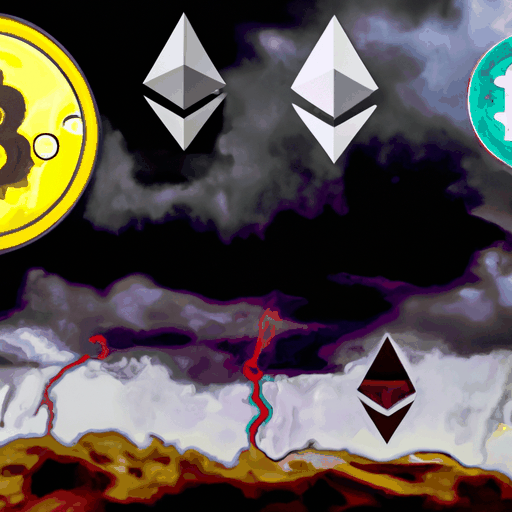
Cryptocurrency Prices Plunge Amid Trump's Trade War Threats
By: Eva Baxter
In an unprecedented move, the cryptocurrency market experienced one of the most significant downturns in its history recently as Bitcoin, Ethereum, and Dogecoin suffered massive price crashes. The upheaval was a direct result of heightened geopolitical tensions, with the U.S. President Donald Trump announcing severe trade measures against China. This news sent ripples through the financial world, igniting fears of an impending global economic conflict.
The fallout from Trump's aggressive stance on imposing a 100% tariff on Chinese goods, effective November 1, created immediate tremors across financial markets globally. The cryptocurrency sector was not spared. According to CoinMarketCap, Bitcoin dropped to a low of $104,000, erasing its prior gains and falling below the $126,000 mark. In the same vein, Ethereum and Dogecoin courted hefty declines, plummeting to $3,400 and $0.11 respectively.
This sharp decline wiped out an estimated $20 billion in market capitalization within a 24-hour window, according to CoinGlass data. This marked a more significant liquidation event compared to past financial setbacks such as the 2020 COVID-19 crash and the FTX collapse. It set the stage for increased volatility as investors scrambled to adjust their portfolios and hedge against further losses.
Market insiders indicate that the downturn was exacerbated by actions from major cryptocurrency exchanges. High-profile exchanges, including Coinbase and Binance, may have allegedly auto-liquidated leveraged accounts amidst the tumult, deepening the slump. BitMEX co-founder Arthur Hayes remarked that the auto liquidation of collateral due to cross-margined positions likely compounded the decline of many altcoins.
Experts suggest that the problem was compounded by the inability of users to capitalize on lower prices as many exchanges faced operational hitches under the highly volatile conditions. Until a sense of equilibrium returns, the hover over potential economic warfare will continue to cast a shadow over the cryptocurrency markets.



